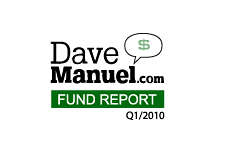What Exactly is a Fund of Hedge Funds?
 The term "fund of hedge funds" has been used quite often in the media as of late.
The term "fund of hedge funds" has been used quite often in the media as of late.First off, a number of successful hedge funds (meaning, funds that have actually posted a positive return in 2008) have recently complained that they are falling victim to redemption requests from "fund of hedge funds", even though they have far outperformed the markets in 2008.
Second, news reports have recently stated that Fairfield Greenwich had about $7.5 billion dollars invested in Bernard Madoff through its Fairfield Sentry fund. The Fairfield Sentry fund was nothing but a "fund of hedge funds" - actually, it was simply a "fund of hedge fund", as all it did was invest in Bernard Madoff's company.
So what is a "fund of hedge funds"?
A "fund of hedge funds" pools together investor money and invests in one or a number of different hedge funds.
The idea behind this setup is that the "fund of hedge fund" will use its gobs of investor assets to invest in the premier hedge funds that might otherwise be unavailable to investors.
For instance - let's say that you have a million dollars and you would like to invest in SAC Capital Partners (Steven Cohen's hedge fund company). A million dollars might not be enough to invest in the company.
Now let's say that you decide to invest in a "fund of hedge funds". This fund is managed by a person who has many contacts within the industry, including Steven Cohen himself.
The "fund of hedge funds" can pool together your money with the money of other investors, and look to invest a much larger amount with Steven Cohen. SAC Capital Partners accepts the investment, and suddenly you have exposure to the fund. By yourself, you couldn't have gotten through the door - but with a "fund of hedge funds", suddenly you are granted access.
Some "fund of hedge funds" simply invest in one fund (as mentioned in the Fairfield Sentry fund situation). Other funds will spread their exposure, investing in a number of different funds.
The "fund of hedge funds" charge a fee on TOP of what the underlying hedge funds already charge.
Many major hedge funds will charge a management fee (say, 2-4% of total assets per year) as well as a performance fee (anywhere from 20-50% of total fund profits every year). The "fund of hedge funds" will charge a fee on top of this.
For instance, the Fairfield Sentry fund had about $7.5 billion dollars invested with Madoff.
If they were charging a 1% management fee per year, then they were raking in $75 million dollars in profits in exchange for parking their client's money with Madoff.
Many of these "fund of funds" have been hit with investor redemption requests of their own.
If a "fund of hedge funds" is hit with redemption requests, what are they going to do to raise money?
They are going to file their own redemption requests with the hedge funds that they are invested in.
"Fund of hedge funds" are a major contributing factor to why a number of hedge funds that have significantly outperformed the markets in 2008 have been hit with redemption requests.
"Fund of hedge funds" are coming under increasing scrutiny right now, not only from the media but also from major hedge funds themselves. Major hedge funds are becoming frustrated with the increasing redemption requests from these "fund of hedge funds", and some have already said that they will no longer be accepting this form of investor capital.
Filed under: Stock Market Education



